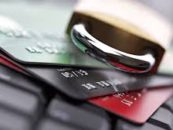RELATED: Fraudsters Use Breached Credit Cards on Apple Pay
JPMorgan Chase announced Tuesday that it expects to replace more than 70 percent of its traditional Chase credit and debit cards with chip-enabled versions by the end of the year.
“Fraud and security threats facing consumer payments today is a complex issue that can’t be solved with any single technology,” said Gordon Smith, the company’s chief of consumer and community banking.
Chase, the nation’s largest credit-card issuer, already has more than 22 million chip-enabled cards in the market, thanks to a rollout that began in 2011 with some of the company’s JPMorgan-branded products.
By Dec. 31, close to 75 percent of all U.S. credit cards and about 40 percent of domestic debit cards will feature chips, according to the Aite Group, an independent research firm.
Retailers are scrambling to keep pace. Under federal rules set to take effect in October, merchants that haven’t upgraded their payment terminals to accept the new cards will bear increased liability for fraudulent charges.
Most cybersecurity experts agree that chip-enabled cards will curb credit-card fraud — especially once the technology becomes the default option nationwide. The transition, however, might have a short-term downside, they warn.
“The window may be closing for hackers to easily profit from point-of-sale attacks on brick-and-mortar retailers,” credit giant Experian said.
“We expect a continued influx of payment breaches in the near-term before the new system is implemented late next year.”
Translation: Crooks will get — or at least try to get — while the getting’s good.
RELATED: 5 Habits of Highly Effective Credit Card Users
The U.S. market has been a favorite target for some time.
So-called EMV technology — EMV is short for Europay, MasterCard and Visa, three companies instrumental in setting the chips’ compatibility standard — has been widely accepted in Canada, Mexico and much of western Europe for several years. Many U.S. card issuers, in contrast, have been slow to make the switch, in part because of costs associated with the conversion.
Chip-enabled cards cost about $2 apiece, almost five times more than their traditional counterparts. And replacing the existing point-of-sale card readers will require merchants to invest as much as $1,000 per terminal, the National Retail Federation estimates.
Aite Group said a seemingly unabated increase in card-related crime is the main reason for the technology’s newfound popularity among U.S. card issuers. The research firm noted that the domestic credit-card fraud rate has more than doubled since 2007.
Unfortunately, anyone who thinks the chip technology will stamp out credit-card fraud will be sorely disappointed, Experian said.
“Because the October 2015 deadline to adopt the new technology has been publicly announced, cyberthieves have likely already identified vulnerabilities they can target in the new infrastructure,” the company said.
“As this technology is viewed by many as the panacea for retail breaches, consumers could easily get a false sense of security.”
Now, we want to hear from you! Would like to share your opinion or make a comment on the Unlock Your Wealth Radio Show? If so, then please leave your comment or questions in the space provided below and share this article with your friends and family on Facebook and Twitter. Your comments or question could be chosen as our featured Money Question Monday and a phone call by financial expert Heather Wagenhals could dial your way to be live on the Unlock Your Wealth Radio Show.





